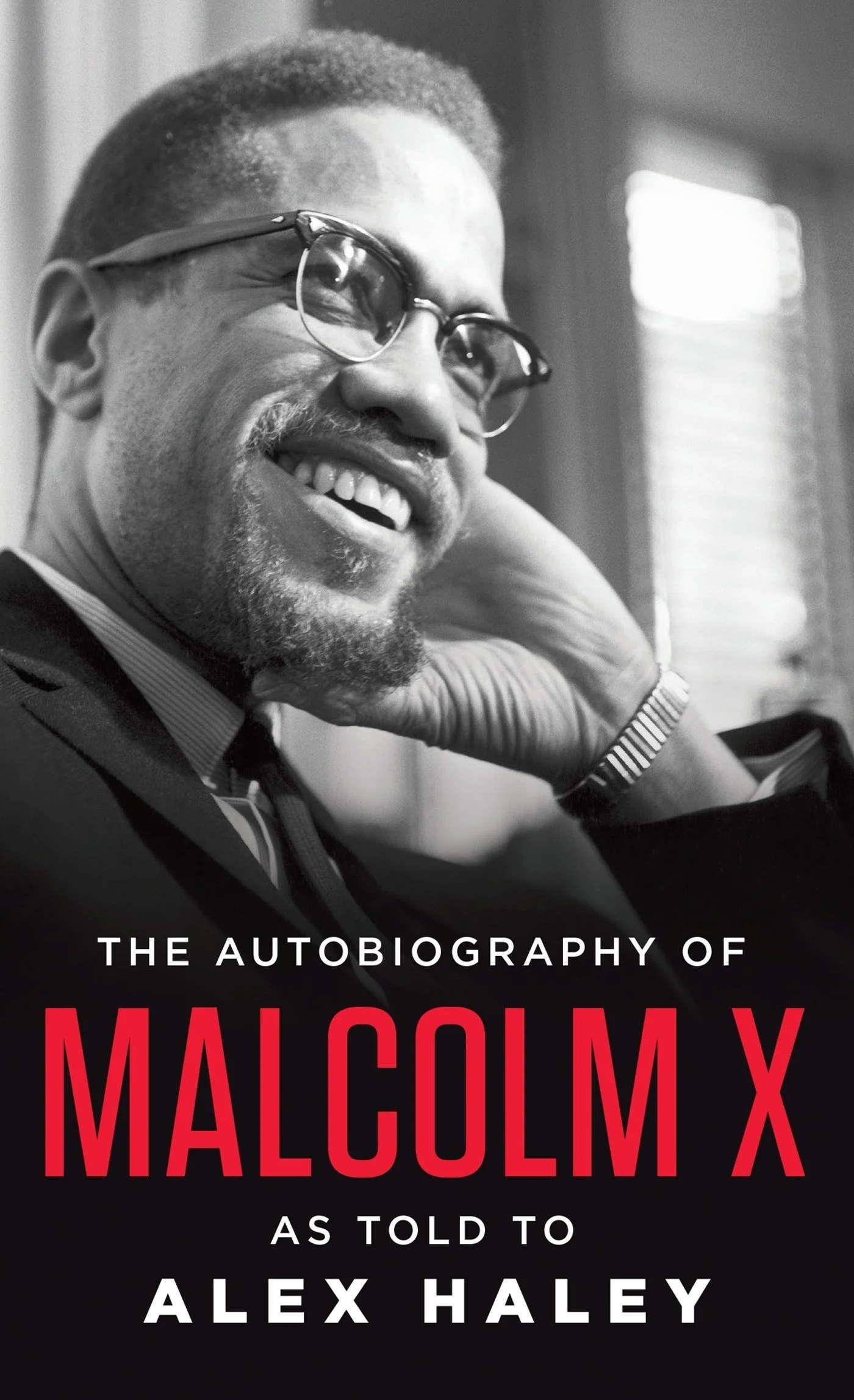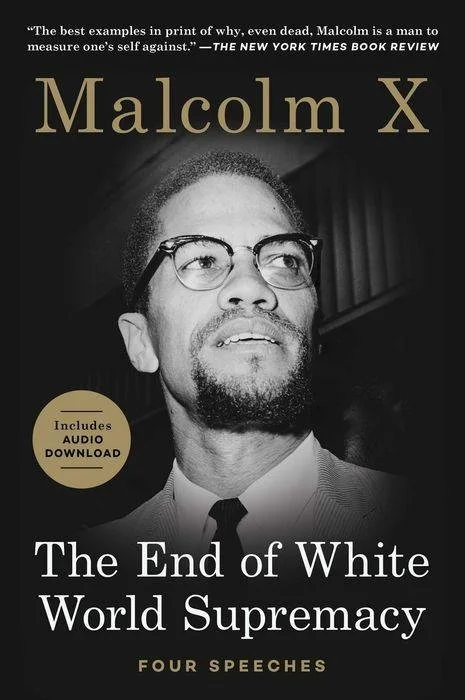Malcolm X
The Autobiography of Malcolm X: As Told to Alex Haley
[From Barnes & Noble]
In the searing pages of this classic autobiography, originally published in 1964, Malcolm X, the Muslim leader, firebrand, and anti-integrationist, tells the extraordinary story of his life and the growth of the Black Muslim movement. His fascinating perspective on the lies and limitations of the American Dream, and the inherent racism in a society that denies its nonwhite citizens the opportunity to dream, gives extraordinary insight into the most urgent issues of our own time.
The Autobiography of Malcolm X stands as the definitive statement of a movement and a man whose work was never completed but whose message is timeless. It is essential reading for anyone who wants to understand America.
The End of White World Supremacy: Four Speeches
[From Barnes & Noble]
Malcolm X remains a touchstone figure for black America and in American culture at large. He gave African Americans not only their consciousness but their history, dignity, and a new pride. No single individual can claim more important responsibility for a social and historical leap forward such as the one sparked in America in the sixties. When, in 1965, Malcolm X was gunned down on the stage of a Harlem theater, America lost one of its most dynamic political thinkers. Yet, as Michael Eric Dyson has observed, “he remains relevant because he spoke presciently to the issues that matter today: black identity, the politics of black rage, the expression of black dissent, the politics of black power, and the importance of consolidating varieties of expressions within black communities—different ideologies and politics—and bringing them together under a banner of functional solidarity.”
The End of White World Supremacy contains four major speeches by Malcolm X, including: “Black Man's History,” “The Black Revolution,” “The Old Negro and the New Negro,” and the famous “The Chickens Are Coming Home to Roost” speech ("God's Judgment of White America"), delivered after the assassination of John F. Kennedy. Several of the speeches include a discussion with the moderator, among whom Adam Clayton Powell, or a question-and-answer with the audience. This new edition bundles with the book an audio download of Malcolm's stirring delivery of “Black Man's History” in Harlem's Temple No.7 and “The Black Revolution” in the Abyssinian Baptist Church.


